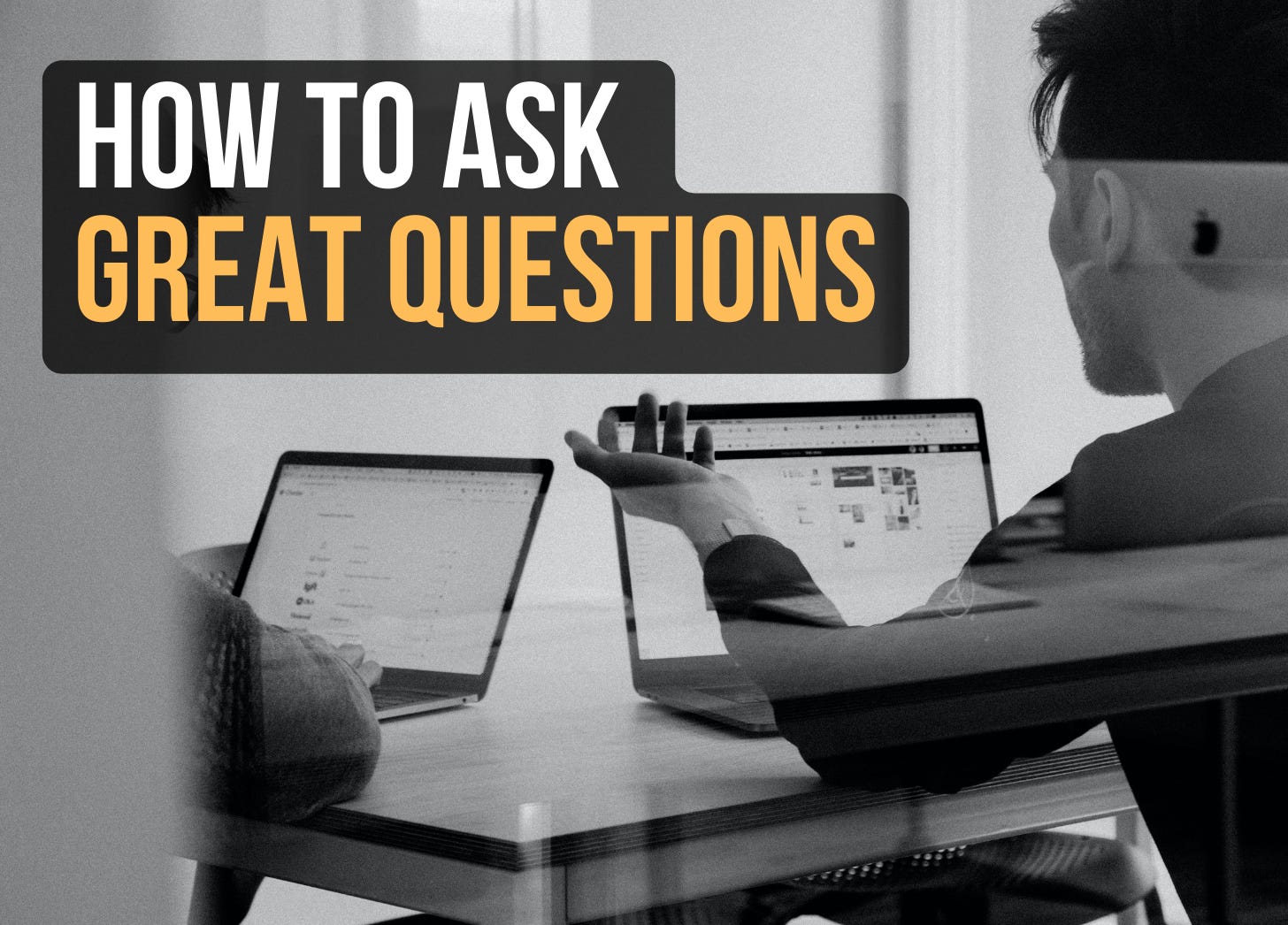What Are Great Questions To Ask Clients?
Yes, there are bad questions.
Welcome to my new newsletter. If you want to build a thriving consultancy practice in your niche, I want to help. Please subscribe to my newsletter and check out my other articles. If you enjoy today’s article, then feel free to share it.



